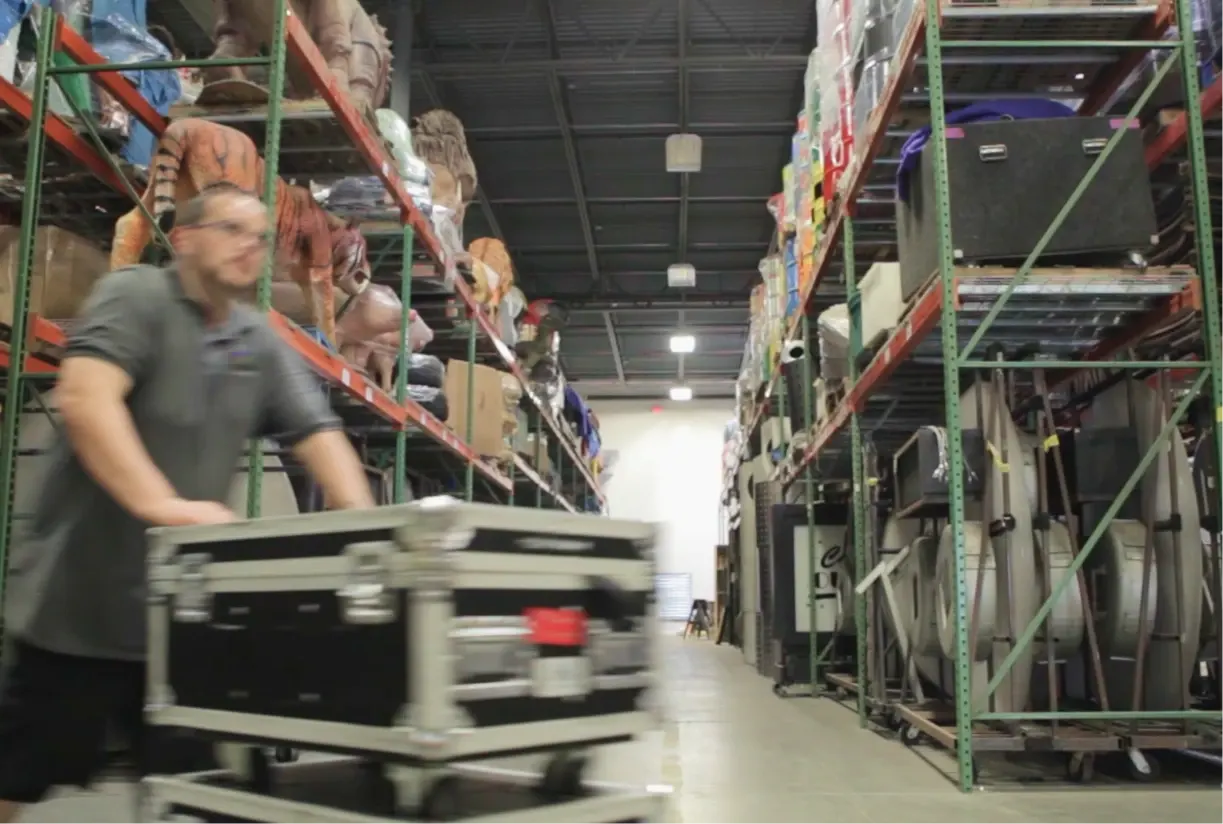Every side-hustle freelancer longs for the day when their side-hustle becomes their main hustle. Quitting your day job too soon can easily lead to disaster, but quitting too late can lead to a lot of missed opportunities— and burnout. So, if you’re asking yourself when you should quit your day job, keep reading.
Before getting to the business side of things, we’d be remiss if we didn’t mention personal finances. If you’re a single household, you should have enough money to cover about 3-6 months of living expenses in your personal savings account before you even think about quitting your day job. If you are a two-income household, you’ll want to create a budget to understand how much money you’ll need in your savings to cover a 3-6 month period.
Signs that it’s time
There are some pretty clear signs that you’re ready to give your event rental company your full attention. While quitting your day job is intimidating, at a certain point it will become necessary to choose. Before you venture out on your own, make sure you create a business plan so that you have a strategy for growing your business into a booming, full-time venture.
A business plan will help you make detailed, organized plans for your business, including budgets, plans for growth, and a marketing strategy. They are also phenomenal tools for determining what will and what won’t work for your company, given your location, demographics, and budget; being able to test different aspects of your business on paper first will help you guard against potential financial disaster and a failing business. With your business plan in hand, you can better prepare for things you know you’ll encounter, like the slow season. If you made a business plan when you started your business, great! Now it’s time to update it for the next phase of your company.
So, when should you quit your day job for your side hustle?
You’re booked out
If you’re booked out for 6-8 months, that’s an excellent sign that your business is ready to take on more clients and go full time. If you aren’t already maintaining a waiting list, it’d be a good idea to start. Not only will this keep the money flowing if a client cancels, but it also creates an exclusive vibe around your business, which is sure to attract other potential clients.
You’re nearly full time anyway
If you’re already working 30-35 hours a week at your rental company, it’s time to consider going full time. Maintaining 70-80 hour work weeks may be necessary for the short term, but will eventually lead to burnout if you keep it up long term. Where you focus your energy matters, and when you divide your attention by working nearly full time at both jobs, they will ultimately both suffer.
You already have a growing business savings account
If you are making enough money at your rental company to establish, maintain, and grow a business savings account, then you are making enough to go full time. Freeing up the time you dedicate to your day job will allow you to bring in more clients, more money, and more inventory. It’s time to shift focus and forge your way forward!
You need a lot of help because you’re so busy
Congrats! You’ve got more events that you can handle and still have your day job— so maybe it’s time to ditch your day job and focus strictly on events. If you already have to enlist help (and perhaps already have some employees), it may be time to take those helpers with you to full time status, or hire more part-time help.
You’re running out of room to store your inventory
The more events you have, the more inventory you’ll need; the more inventory you have, the more events you’ll be able to do. If you’re already pushing the limits of what you can do part-time and you’re quickly running out of storage space for your inventory, it’s time to consider going full time and moving to a bigger facility.
Preparing for the slow season
The slow season can be a challenging time for any event company, but is particularly so to those who are just starting out, as new businesses are less likely to have an established savings account large enough to support them through the entire slow season. You will need to save money, plan, and come up with various strategies on how to get you and your employees through the lean times and back to the busy season, all while avoiding financial trouble. While the slow season can be a financial struggle, it is also a great time to do an audit of your inventory, up your marketing game, and tend to any other housekeeping matters within your business.
While quitting your day job is an intimidating leap, if you prepare yourself and your company for lean times, you’re more likely to create a thriving business. If you find yourself in one or more of the previously mentioned situations, it’s time to quit your day jobs and move your event rental business to full-time status. Create a business plan that details your next-steps and set up meetings with your accountant attorney to ensure everything is in order going into the next phase of your business.






